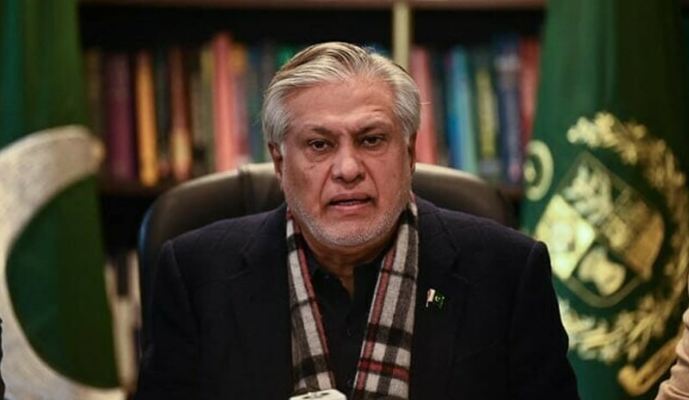ISLAMABAD, MAY 10: Deputy Prime Minister and Foreign Minister Ishaq Dar, speaking live on Samaa TV, said that Pakistan has shown immense restraint during the recent escalation with India and only responded after its patience was exhausted.
He emphasized that Pakistan’s actions were defensive in nature and not provocative, saying that Pakistan has shown proof of whatever has happened.
“Political contacts are underway, and we have exercised a great deal of patience,” Dar stated. “But when the patience scale is full, we respond. And that’s exactly what we did — a strong response in our defence.”
He reiterated Pakistan’s willingness to de-escalate tensions, provided India halts its aggressive posture. “If India stops, we will also stop,” Dar said. “We talk about equality. Fighting is not the solution to anything.”
Referring to international mediation efforts, Dar revealed that US Secretary of State Marco Rubio had been assured that if India refrains from further military action, Pakistan would step back. “But we don’t want commitments. We acted in self-defence.”
He also confirmed that the United States and Saudi Arabia have called on both nations to step back from the brink. “We told them that if India stops, we will also stop. That’s our clear stance.”
Also Read: US Secy of State Marco Rubio dials COAS Munir; urges de-escalation
Highlighting the professionalism and bravery of Pakistan’s armed forces, Dar said, “Our troops have proudly held the nation’s head high while representing everyone.”
He urged an end to the blame game, asserting that Pakistan did not initiate the conflict and that recent retaliatory steps were both measured and justified. “The cycle of blaming Pakistan must end. We have not taken the initiative in any of this, but we will not allow aggression to go unanswered.”
Dar concluded by saying that the last 48 hours had been accounted for by Pakistan in asserting its stance and defending its sovereignty with dignity.
Speaking to the same TV channel, Defense Minister Khawaja Asif confirmed that the country launched strikes on Indian airfields, disabled India’s defense systems, and inflicted significant damage as part of its response to recent escalations.
Asif told Samaa TV that Pakistan was now prepared for the next phase of operations against India.
In his interview, the minister outlined that the time for testing Pakistan’s patience had passed, noting that despite facing aggression from India, Pakistan had refrained from escalating to a larger scale.
Also Read: Pakistan ready for next phase against India, says Khawaja Asif
“We tried not to escalate the situation, but we have effectively responded to Indian provocations,” he said. The defense minister made it clear that Pakistan’s response had been both measured and impactful, emphasizing that despite attacks on key sites like the Nur Khan Air Base, Pakistan suffered no significant losses.
Meanwhile, earlier today, US Secretary of State Marco Rubio held a phone conversation with Chief of Army Staff General Asim Munir amid rising tensions between Pakistan and India.
According to a statement released by the US State Department, Rubio emphasized the urgent need for both nations to pursue diplomatic avenues to de-escalate the situation. He reiterated Washington’s willingness to assist in facilitating constructive dialogue to prevent further conflict in the region.
Rubio underscored that regional stability remains a top priority for the United States and encouraged restraint and continued communication between both governments.
Also Read: Indian Army admits losses, seeks de-escalation after Pakistani strikes
Rubio also spoke with Deputy Prime Minister Dar to discuss the evolving situation following recent Indian strikes and Pakistan’s subsequent response, according to a statement from the Foreign Office.
On the other hand, the Indian Army acknowledged suffering significant losses following a series of missile attacks by Pakistan on multiple Indian airbases and military installations.
Addressing a press conference in New Delhi, an Indian Army spokesperson confirmed that Pakistan launched high-speed missile strikes on strategic airbases located in Pathankot, Udhampur, Bhuj, and Adampur. The spokesperson said the strikes caused “considerable damage” to infrastructure and equipment, and led to “human and material losses.”
“This was an unprecedented and coordinated assault. We confirm that Pakistan targeted 26 of our installations, including frontline airbases,” the spokesperson said, adding that the Indian military had “taken note of the aggression” but reiterated that New Delhi was not seeking an escalation of tensions.
Colonel Sofia Qureshi in the press briefing said India was committed to halting further escalation, provided Pakistan reciprocated. “India does not wish to prolong this conflict. If Pakistan also agrees to de-escalate, we are prepared to stand down,” she said.

















